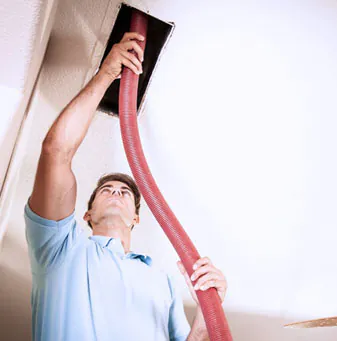Indoor air quality is a crucial aspect of our health and well-being, yet it is often overlooked. One of the most effective tools to enhance indoor air quality is a humidifier. These devices, by adding moisture to the air, can alleviate a variety of health issues and create a more comfortable living environment. In this blog, we’ll delve into the science behind humidifiers and how they improve indoor air quality.
Understanding Humidity and Its Importance
Humidity refers to the amount of water vapor present in the air. It is typically measured as a percentage, known as relative humidity (RH). The ideal indoor relative humidity level ranges between 30% and 50%. When humidity levels fall below this range, the air becomes dry, which can lead to a variety of problems including dry skin, respiratory issues, and increased susceptibility to infections.
See Also Air Conditioning Maintenance Myths Debunked: What You Really Need to Know
How Humidifiers Work
Humidifiers are designed to add moisture to the air in a room or an entire house. There are several types of humidifiers, each operating differently to achieve the same goal:
- Evaporative Humidifiers: These are the most common type. They use a fan to draw air through a wet wick or filter. As the air passes through, it picks up moisture and then circulates it back into the room.
- Ultrasonic Humidifiers: These devices use ultrasonic vibrations to produce a fine mist of water that is released into the air. They are often quieter and more energy-efficient than other types.
- Steam Vaporizers: These humidifiers heat water to create steam, which is then cooled slightly before being released into the air. They are effective but can be a burn risk if not handled properly.
- Impeller Humidifiers: These use a rotating disk to fling water at a diffuser, breaking the water into fine droplets that are then released into the air.
See Also Ultimate Comparison: Gas Furnaces vs. Electric Heating Systems
The Impact of Humidifiers on Indoor Air Quality
1. Moisturizing Dry Air
Health Benefits: Dry air can cause a range of health issues such as dry skin, irritated eyes, and respiratory problems. By adding moisture to the air, humidifiers help alleviate these conditions. They are particularly beneficial during the winter months when indoor heating systems can significantly reduce indoor humidity levels.
Comfort: Humidified air feels warmer, which can make your home more comfortable. This can also lead to energy savings as you may feel comfortable at a lower thermostat setting.
See Also Integrating Heat Pumps with Smart Home Technology for Improved Efficiency
2. Reducing Respiratory Issues
Allergies and Asthma: Dry air can aggravate allergy and asthma symptoms. A humidifier can help maintain optimal moisture levels in the nasal passages and throat, reducing irritation and making it easier to breathe.
Colds and Flu: Maintaining adequate humidity levels can reduce the survival of viruses in the air, decreasing the likelihood of catching colds or flu. Moist air also helps keep the mucous membranes in your respiratory tract moist, which is essential for trapping and expelling germs and particles.
3. Protecting Household Items
Wood Furniture and Floors: Wood can crack and warp when exposed to dry air for extended periods. Humidifiers help maintain the moisture balance in wooden furniture and flooring, extending their lifespan.
Musical Instruments: Instruments made of wood, such as pianos, guitars, and violins, can suffer from dry air. Proper humidity levels help preserve their quality and performance.
4. Improving Indoor Plant Health
Indoor plants thrive in environments with adequate humidity. Dry air can cause plants to lose moisture faster than they can absorb it, leading to wilting and poor growth. Humidifiers help maintain a balanced environment that supports plant health and growth.
5. Static Electricity Reduction
Low humidity levels increase static electricity, which can be annoying and even damaging to electronic devices. By maintaining optimal humidity levels, humidifiers reduce the occurrence of static electricity.
Choosing the Right Humidifier
Selecting the right humidifier depends on your specific needs and the size of the area you want to humidify.
- Room Size: Smaller rooms may only require a portable humidifier, while larger spaces or entire homes might benefit from a whole-house humidifier integrated into the HVAC system.
- Maintenance: Consider the maintenance requirements, such as regular cleaning and filter replacement. Some models are easier to maintain than others.
- Noise Level: If you are sensitive to noise, ultrasonic humidifiers are generally quieter than other types.
- Budget: Prices can vary significantly. Ultrasonic and evaporative humidifiers are typically more affordable, while steam vaporizers and whole-house systems might be more expensive.
See Also The Ultimate Checklist for Air Conditioning Installation in 2024
Maintaining Your Humidifier
To ensure your humidifier operates efficiently and safely, regular maintenance is crucial:
- Clean Regularly: Clean the water tank and components as per the manufacturer’s instructions to prevent mold and bacteria buildup.
- Use Distilled Water: Using distilled or demineralized water can reduce the buildup of mineral deposits in the humidifier.
- Replace Filters: If your humidifier uses filters, replace them regularly to maintain efficiency and air quality.
Conclusion
Humidifiers play a vital role in improving indoor air quality by maintaining optimal humidity levels. They offer numerous benefits, from alleviating health issues and enhancing comfort to protecting household items and reducing static electricity. By understanding the science behind humidifiers and selecting the right type for your needs, you can create a healthier and more comfortable indoor environment.
For those in Houston, TX looking to improve their indoor air quality, KAC Express offers a range of humidifier solutions tailored to your needs. Contact us today to learn more about how we can help you breathe easier and live more comfortably.



0 Comments